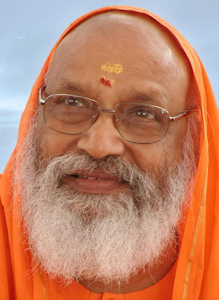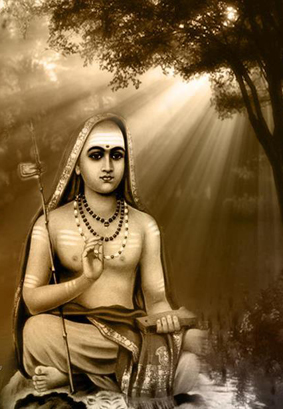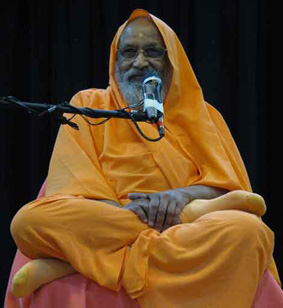 SWAMI DAYANANDA SARASWATI
SWAMI DAYANANDA SARASWATI
Interview with non duality magazine
Swami Dayananda Saraswati
Swami Dayananda Saraswati is a contemporary teacher of Vedanta and a scholar in Sanskrit in the tradition of Śankara. Swamiji has been teaching Vedanta in India for more than five decades and around the world since 1976. His deep scholarship and assimilation of Vedanta combined with a subtle appreciation of contemporary problems make him that rare teacher who can reach both traditional and modern students.
A teacher of teachers, Swami Dayananda taught six resident in-depth Vedanta courses, each spanning 30 to 36 months. Four of them were conducted in India and two in the United States. Each course graduated about 60 qualified teachers, who are now teaching throughout India and abroad. Under his guidance, various centers for teaching of Vedanta have been founded around the world; among these, there are three primary centers in India at Rishikesh, Coimbatore, Nagpur and one in the U.S. at Saylorsburg, Pennsylvania. There are more than one hundred centers in India and abroad that carry on the same tradition of Vedantic teaching.
In addition to teaching, Swami Dayananda has initiated and supported various humanitarian efforts for the last forty-five years. The most far-reaching of these is the establishment of All India Movement for Seva in 2000. Awarded consultative status with ECOSOC (Economic and Social Council) by the United Nations in 2005, this organization is devoted to serving people in the remote areas of India, mainly in the field of Education and Health Care.
Swami Dayananda Saraswati has also promoted several international events and participated as a speaker in several global forums, among which are: the United Nations gathering of NGO’s, the UNESCO Seoul Global Convention, the United Nations 50th Anniversary Celebration, the Millennium World Peace Summit, the International Congress for the Preservation of Religious Diversity, the Conference on the Preservation of Sacred Sites, the World Council for Preservation of Religious Diversity, the Youth Peace Summit, the Global Peace Initiative of Women Religious and Spiritual Leaders, a Hindu-Christian dialogue with the World Council of Churches, and the Hindu-Jewish Leadership Summit
Read the interview at non-duality magazine.



